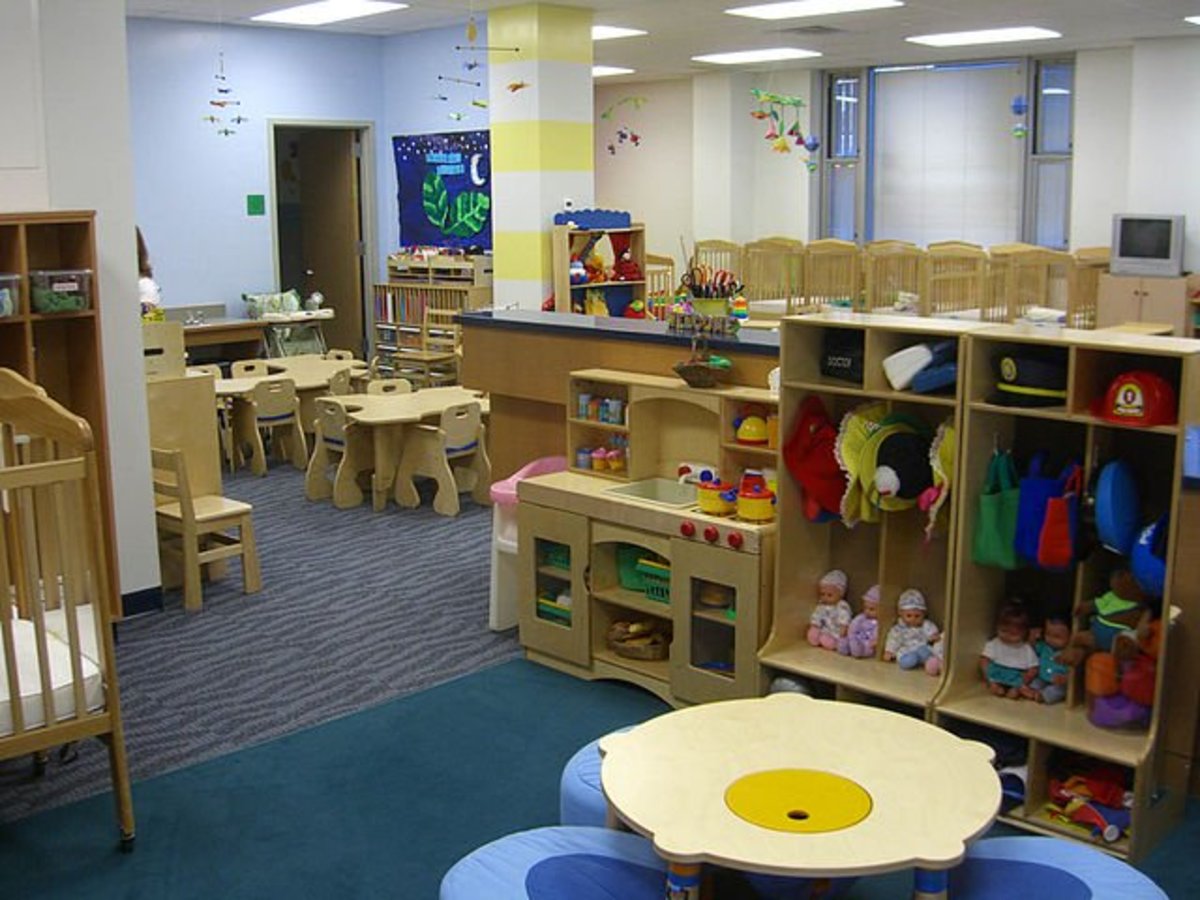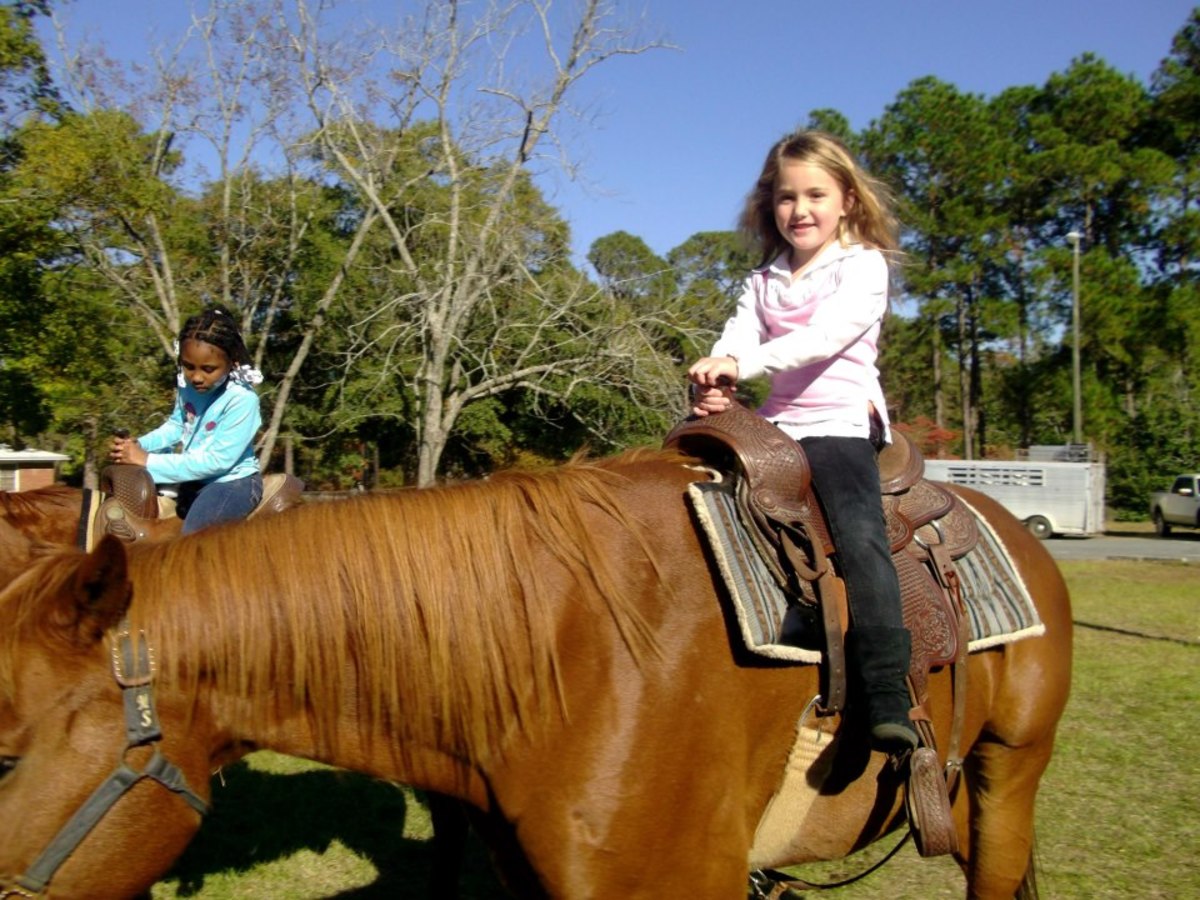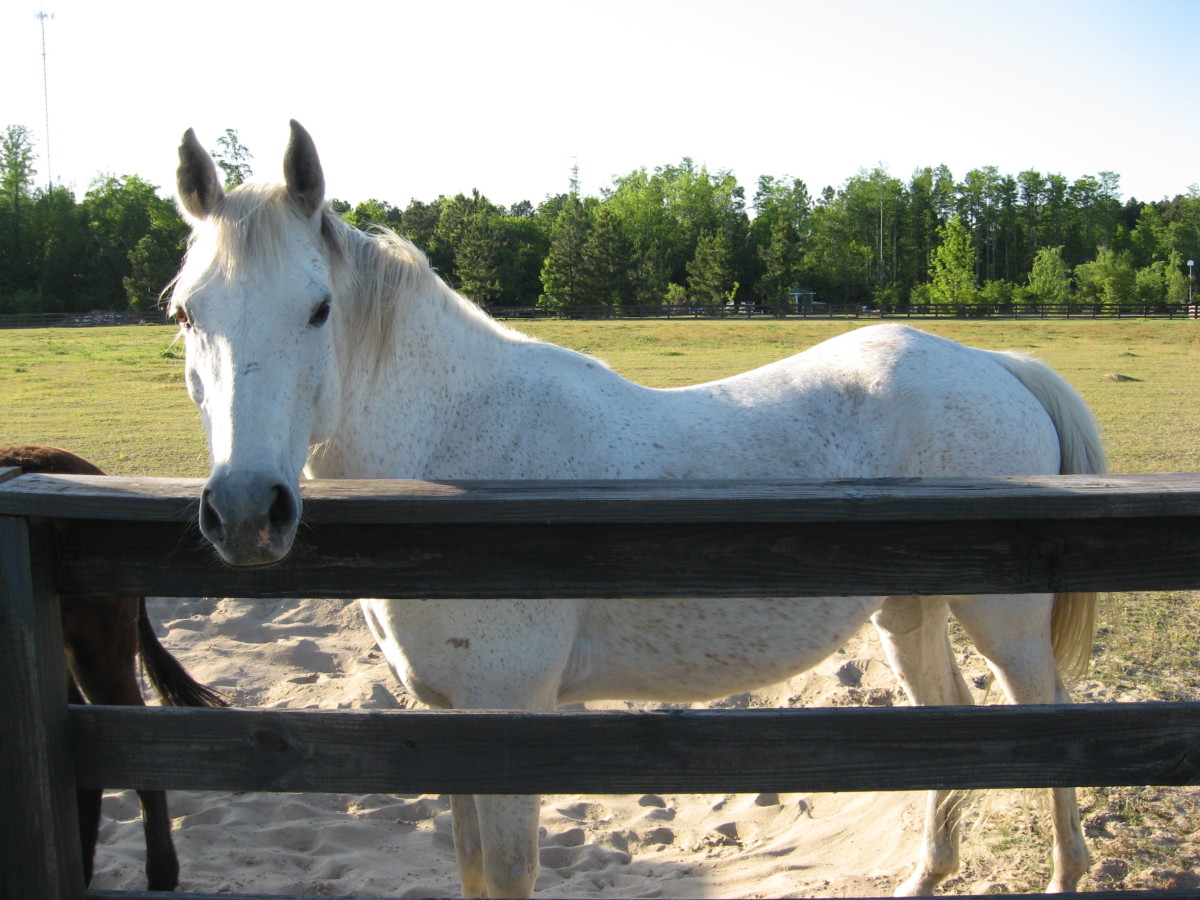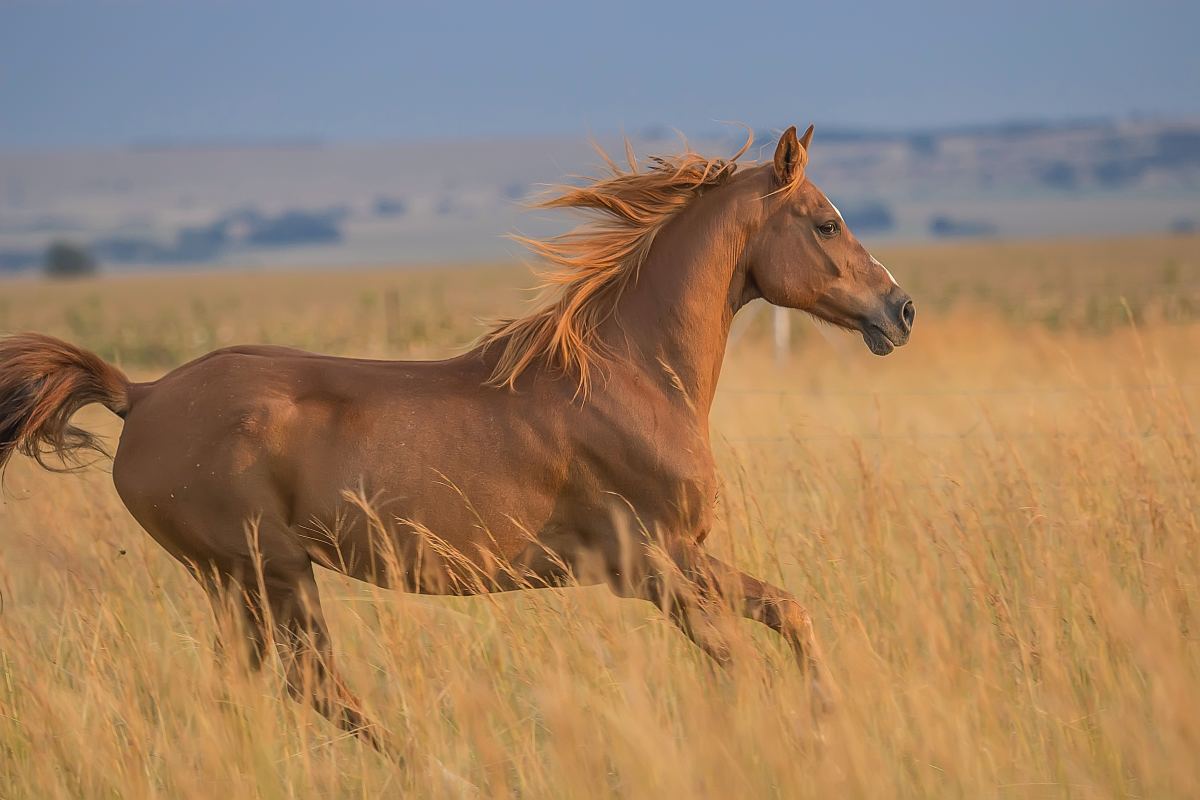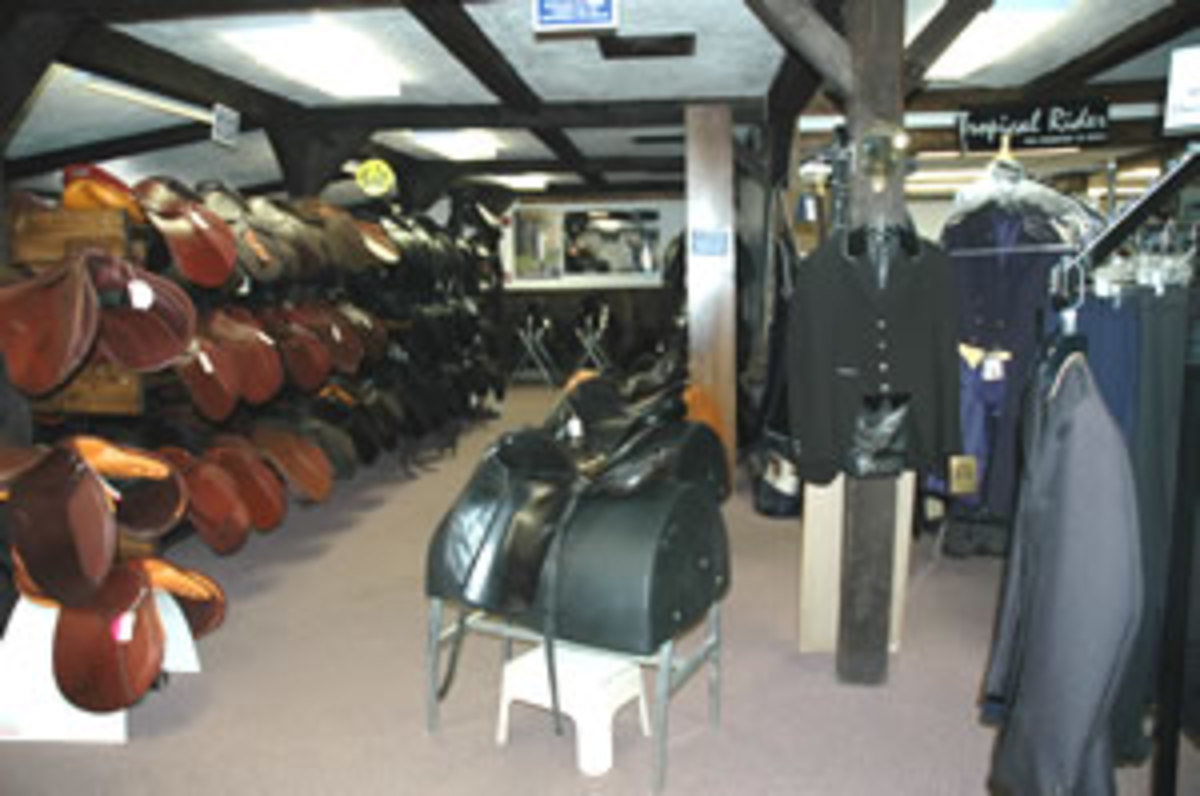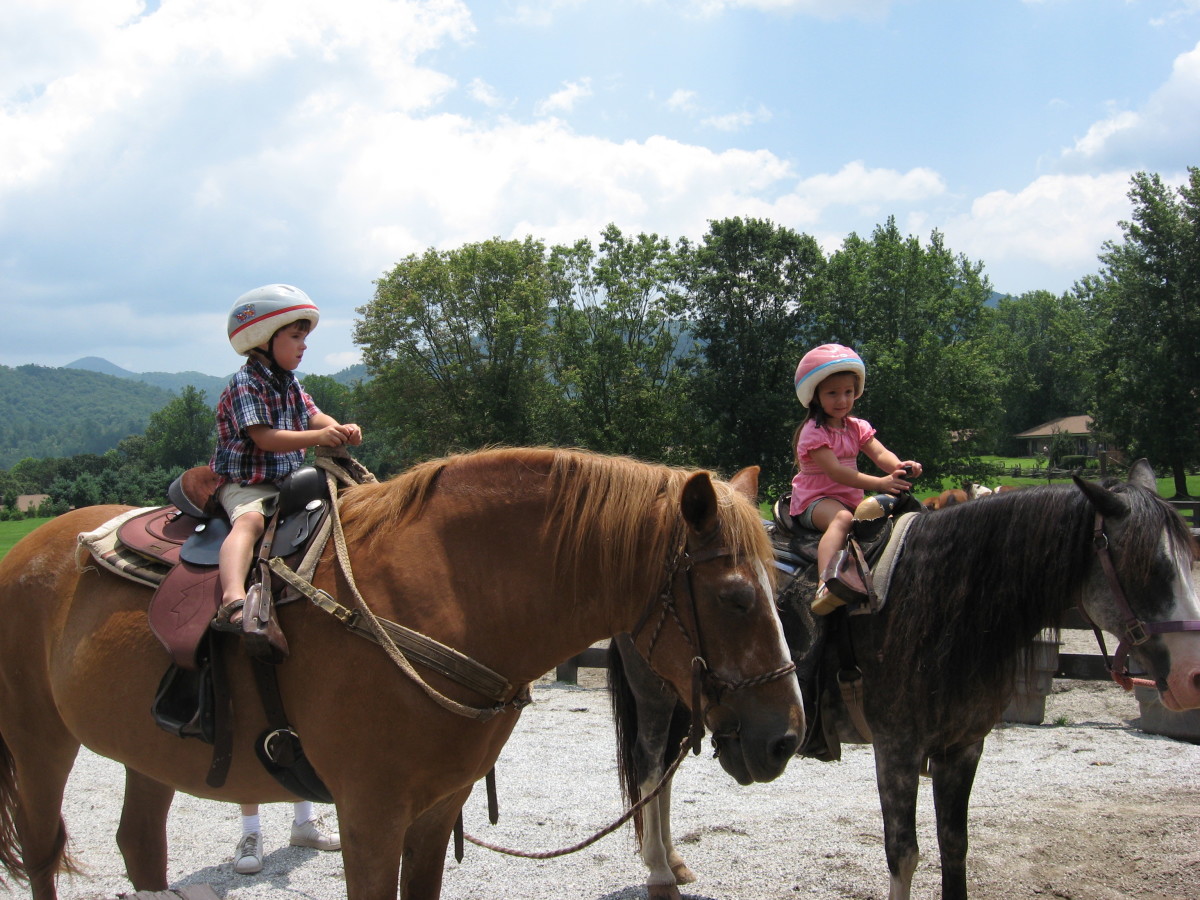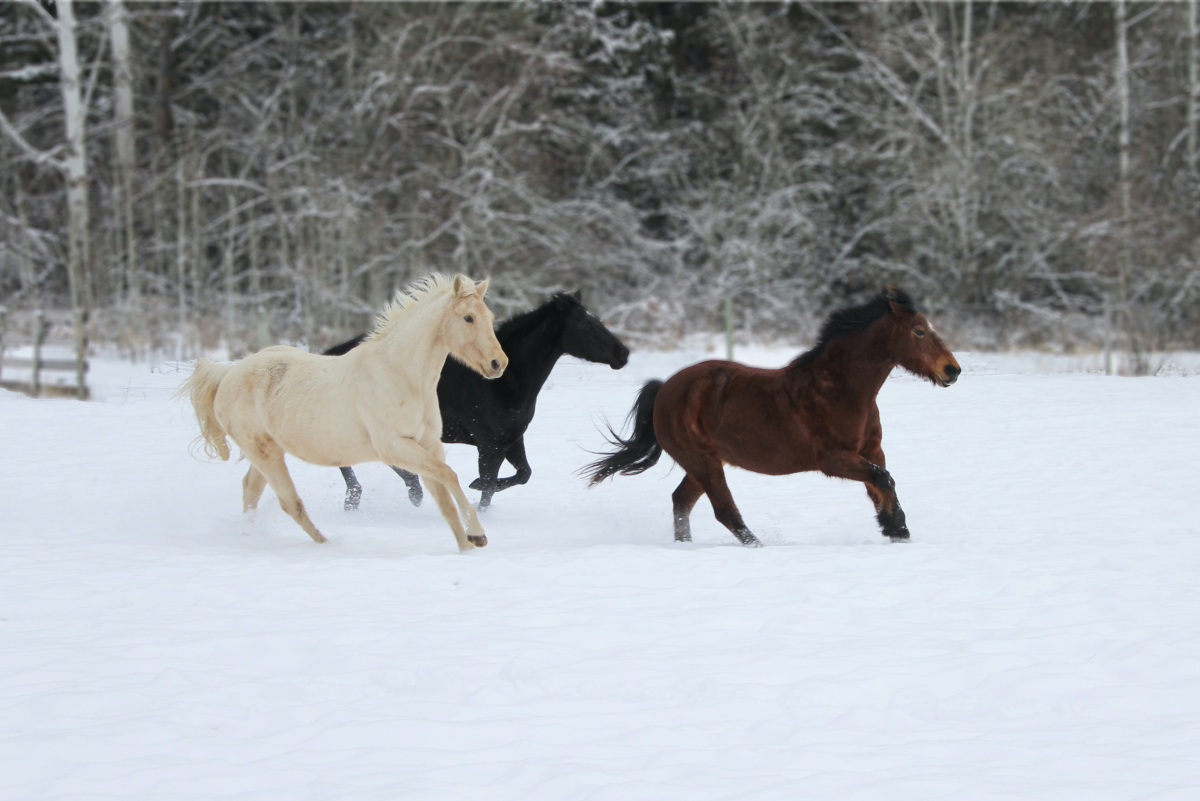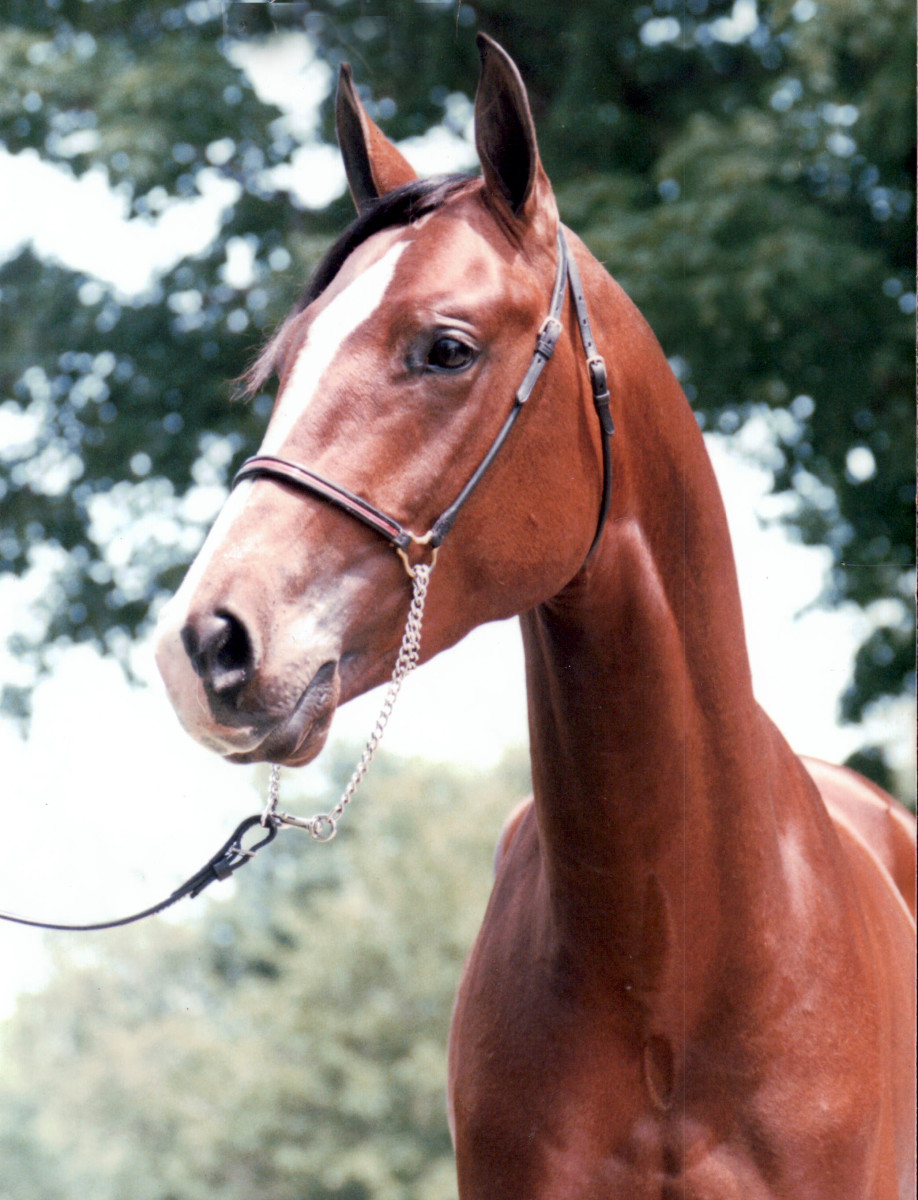Horse Camps: Choosing the Right Camp for Your Child
"Eyes up, heels down!" The riding instructor's mantra rings out across horsemanship camps all over the country during the summer months. Young horse lovers, whether beginners or seasoned riders, can find these camps one of their most rewarding and memorable activities. On the other hand it can turn into pure agony if they are placed in a camp that does not fit their needs.
Campers on a Trail Ride
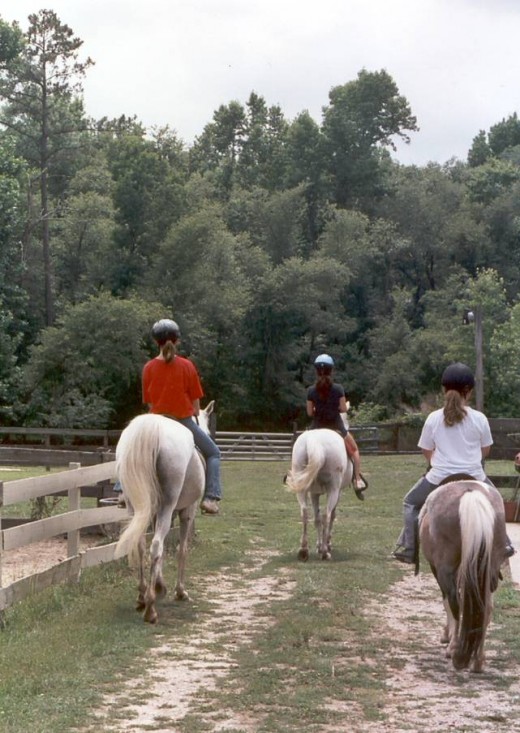
Parents are faced with trying to decide, out of many options, which camp is the right camp for their child. Questions they may ask are: What will my child learn? How much will it cost? Will the camp be a safe environment? All of these are valid questions, and should be answered in order to pick the one camp that will meet a child's particular needs.
Expect head instructors to be certified or have formal education in equine science. Even assistant instructors should at the very least be experienced horsemen. Reputable camps will require students to wear approved safety helmets and boots whenever mounted.
Good school horses are another key to a child's safety. They must be well trained and tolerant of active children. Summer camps that do not have year around programs often lease horses. They go through a careful screening process to make sure the horse is both safe and physically fit.
The teaching goals can vary a great deal from one camp to another. Some camps are geared to youth who have never been near a horse, and others are designed to help the experienced rider hone his skills in preparation for competition. The majority lie somewhere between the two extremes. Young horse enthusiasts can glimpse what is involved in owning a horse through activities like stable management, health and first aid, grooming, tack identification and care, training and showmanship. Most camps use hands-on teaching methods. Use of videos and demonstrations may also be implemented, especially during down times. Many camps offer field trips to veterinary clinics, breeding farms, or competitions and demonstrations presented by equine professionals
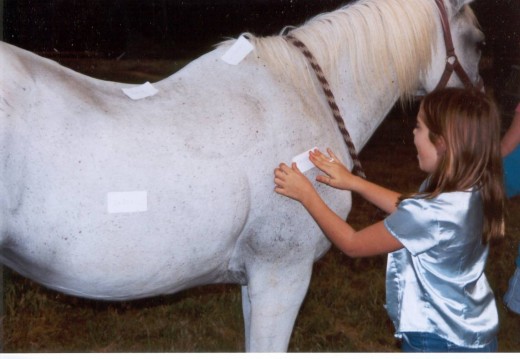
The first, and perhaps easiest consideration is whether you want to send your child to a day or a resident camp. Many riding stables, colleges, YMCA, Boy and Girl Scout and 4-H programs offer day camps, as well as resident programs in the summer. A day camp may be a good start for the younger child who is not ready for an extended stay away from home. Day camps are also generally less expensive. On the down side, not everyone has a day camp facility within commuting distance of home.
Further consideration in choosing a camp is the style of riding your child wants to learn. If your only goal is for your child to gain his or her first experiences on a horse, that might not matter. But, if he wants to improve his jumping skills you do not want to enroll him in a western or saddleseat program. If the advertising does not make clear what riding discipline is taught, be sure to ask.
Some camps allow children to bring their own horses, which means you should expect to pay board in addition to the normal camp fees. This is especially beneficial to more advanced students who want to learn some training principles or get ready for competition. Parents should not expect to send a problem horse to camp with their child for a week or two, and bring it back with all problems solved. Most reputable camps have a screening process for horses entering the program to insure the safety of all of the campers. One-on-one training of campers and their horses require a very specialized program, usually in smaller groups. For that reason these type of programs are going to be more expensive.
The cost of equestrian camps will vary. The 4-H, Scout and YMCA camps are usually priced at the moderate end of the scale. If your child is a member of one of these organizations there might even be scholarships available. Again, goals will determine the camp you choose. A child just starting out will most likely be very happy with one of the youth organization camps, while an Olympic hopeful will need a camp with a more advanced and specific program. General camps that offer horseback riding as one of many activities are usually less expensive, but offer minimal experience with horses.
For children with special needs there are camps with therapeutic riding programs. The North American Riding for Handicapped Association provides accreditation for riding centers and instructors that serve riders with disabilities. NARHA provides a list of accredited riding centers and they have a strict process for application to the centers. They also will work closely with the child's doctors and therapists.
The American Camping Association (ACA) has a list of accredited camps from across the country. The ACA sets standards for safety, health and quality of programs. They list over 500 camps offering horsemanship either as an option or main focus. Ask for, and check references to research the camp's reputation. If at all possible visit the camp.
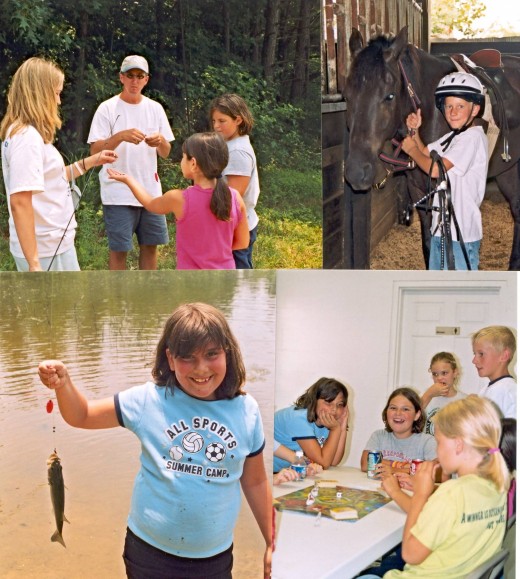
Try to Visit the Camp Ahead of Time
While you are visiting you can ask some questions about the activities. Notice the environment and appearance of the horses. Do they look well cared for? Ask the director about their homesickness policy, visitation and how they handle behavior problems. Ask for a copy of their rules and regulations so you and your child can discuss them beforehand.
Most camps will provide a packing list. If not, ask what the campers should bring, and if there are things they cannot bring. A health certificate for the child with a doctor's signature is also required by reputable camps. When taking their own horse, a health certificate and proof of a negative Coggins test will be required. Results from a Coggins test usually take 7 to 10 after the blood sample is drawn.
Once the choice has been made, it is important to register as early as possible. Some camps are full long before their deadlines, and early registration often comes with an early bird discount. Refund policies vary. Some camps require all of the money in advance, with no refunds. Others require partial payment at registration, and the balance at a later date.
What better way to enhance the horse lover's summer memories than doing nothing else but eat, sleep, play and work around horses? The parents who do their homework can be confident that their children are enjoying a safe environment under the care and instruction of qualified staff.
© 2008 Donna Campbell Smith

